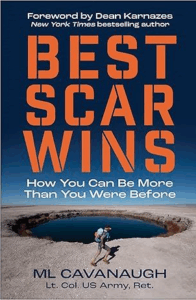1K4D: We’re Off! First Dispatch from the Georgia Race
Georgia 2022, a Special Edition of the Racing the Planet Ultramarathon, is now under way in the southwestern corner of Georgia, an ancient country in the Caucasus region at the intersection of Eastern Europe and Western Asia. Racers will run 155 miles through the remote Javakheti region from June 19-25. This is Matt Cavanaugh’s first dispatch from the race.
Georgia is ancient and muddy.
Let’s start with the ancient. The geography is imposing, as the Caucasus Mountains to the north include some of the highest peaks in Europe and provide a (partial) barrier against the Russians. That hasn’t stopped several empires from invading, including the Byzantines, Persians, Mongols, Ottomans and Russians. One local author said that by his count, Tbilisi (“place of the warm water,” for the natural sulfur baths) had been destroyed 27 times, more than any other world city except Jerusalem.
This place and its past have bred a remarkable culture. The written Georgian language has no known connections to any other, so it looks like nothing you’ve ever seen. The food is exquisite. The khachipuri, a bread, cheese and egg blend, is both familiar and distinct. The khinkali, the Georgian take on dumplings, is exceptional. And their saperavi grapes, used for making wine, are as good as they are old—the Georgians can credibly claim to be the first place in the world to make wine.
We’re running a few hours southwest of Tbilisi, in the Javakheti region (“place of the Javakhs”), a name that shows up in historical records as early as 785 BC. So this place is old.
Old as dirt. Old as mud.
And there’s plenty of it.
We started this morning in a drizzle, maybe high 40s to low 50s. But then a fog set in and that turned the day decidedly worse for all the runners.
I had a strange feeling going into this race. Because Namib was only 5 weeks ago, and I didn’t run for a full week after, I only had one month of training.
But you can hardly call it that. My runs were nowhere near as tough as my preparation for Namib. That was by design. My coach (Jason Koop—the best there is!) counseled that the work done in Namibia would carry over into this one. “Fitness is stubborn,” is how he put it.
So it feels like I’m running less on training and more on faith.
The one thing I did change was my packing. At weigh-in my bag was 12kg; 9kg without water. That’s 6.6 pounds lighter. I needed that today.
I went out with the lead pack at a strong pace and feeling really good despite the rain. Then the fog came in thicker than the thickest fog London’s ever made. At about mile 6, the first 2 guys and I stopped. We could not find the course markers. We looked everywhere. And people behind us kept bunching up with us, until we had 11 runners with us in total.
We ended up calling the “emergency” phone number for the race. Eventually the people that pick up the course marker flags caught up to us and confirmed what we’d suspected—someone, likely a local, had taken a bunch of the flags.
We waited in the cold rain. We all put on our rain stuff, but it wasn’t enough, and everyone jogged to keep bodies moving while we waited for the course marshals to help us get back on course.
After that we had no idea what place we were in—we figured others had somehow gotten ahead of us in the fog. Somehow, when I came through the finish line, I found out I was third overall. I’m honestly shocked, but also frozen and wet to the core. Nothing’s dry, absolutely nothing.
So there’s a long way to go, but today was, somehow, a pretty good start.
There’s so much more to say, so much more I want to write, but my hands are so swollen I had to yank my wedding band off, and I’m starving. (I burned about 3,700 calories today, according to my watch, and my dinner consists of a 510-calorie dehydrated mac ‘n’ cheese meal and a handful of almonds.) So I’ll sign off now and hope for a dryer day tomorrow.
Best Scar Wins

To order Matt’s new book, Best Scar Wins: How You Can Be More Than You Were Before, visit barnesandnoble.com.